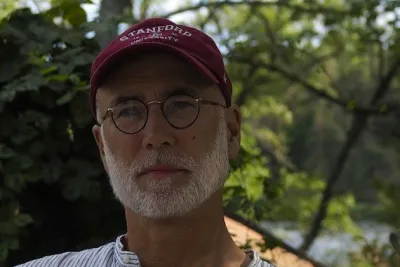Netherlands

Stephen Albert Mrozowski
Steve was a Theme-Group Fellow (Early Dutch Commerce and Indigenous Landscapes) at NIAS during 2024-2025.
I am the founding director of the Andrew Fiske Memorial Center for Archaeological Research at the University of Massachusetts Boston where I am also Professor of Anthropology. My research encompasses the growth of complex societies and the roles of colonization, urbanization and industrialization in shaping the modern world. Currently I am involved in a long-standing study of Nipmuc History as part of a collaboration between the Fiske Center and the Hassanamsico Nipmuc. I am also working with Heather Trigg of the Fiske Center on the LA 20,000 project – a first period ranchero that is destroyed during the Pueblo Revolt as well as a new focus on the growth of early Capitalist political economies in Northern and Western Europe. I am also involved a number of writing projects including the examination of the intersection of commodity production, climate change and issues of universal employment through the lens of historical archaeology, the intersection of history and place through the idea of historical gravity, and the continuing growth of indigenous archaeology through my work with the Nipmuc. My particular research interests include social theory, historical archaeology, political ecology, spatial theory, post colonial and indigenous archaeologies.
Research question: During the 17th century the Anglo-Dutch colonists, enslaved Africans and Indigenous workers lived and labored at Sylvester Manor. How to situate these three groups in the Dutch Colonial world they were a part of?
Steve Mrozowski’s research at Sylvester Manor is an extension of his continuing collaborations with the indigenous peoples of Southern New England in the USA. Currently his work involves collaboration with the Shinnecock of Eastern Long Island and the descendant communities linked to the enslaved Africans who labored on the Manor.
During the 17th century Sylvester Manor helped to provision two large sugar plantations on the island of Barbados that were owned and operated by two Anglo-Dutch brothers, Nathaniel and Constant Sylvester. Today Sylvester Manor still maintains the 1730’s vintage manor house and its surrounding acreage as an educational farm and history center dedicated to preserving the heritage of the indigenous and enslaved Africans who lived and worked at the Manor.
Archaeological excavations (1998-2005, 2019-2024) have unearthed the remains of early buildings as well as domestic and work areas of the 17th century plantation. This material tells a complex story of cultural pluralism that counters 19th efforts on the part of the Sylvester descendants to create a settler colonial landscape where all three groups lived separately.
the growth of complex societies and the roles of colonization; urbanization and industrialization in shaping the modern world.



